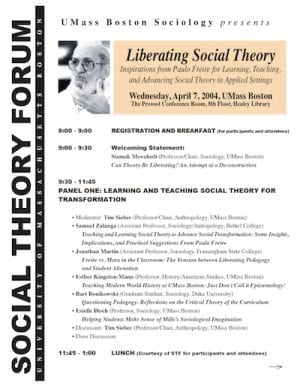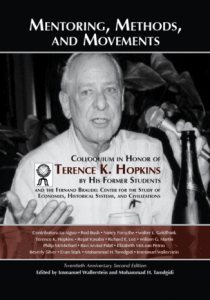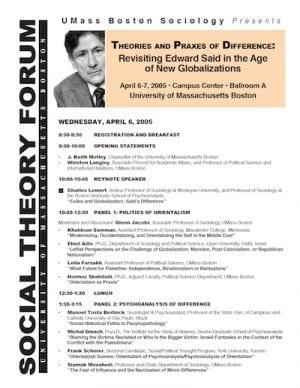Proceedings Journal Article — Toward a Non-Essentialist Pedagogy of “Islam” — by Khaldoun Samman
$15.00
Edward Said’s work captured well the problem with much of what we teach about Islam. We conceptualize the Islamic world as if it were a separate, clearly identifiable civilization that we can teach on its own without a systematic analysis of the larger world within which it is both integrated and incorporated. Rather, in the spirit of Said I argue in this paper that populations are not formed in isolation, that their connections with other populations and with the larger currents of world history require our attention.
Description
Abstract
Edward Said’s work captured well the problem with much of what we teach about Islam. We conceptualize the Islamic world as if it were a separate, clearly identifiable civilization that we can teach on its own without a systematic analysis of the larger world within which it is both integrated and incorporated. Rather, in the spirit of Said I argue in this paper that populations are not formed in isolation, that their connections with other populations and with the larger currents of world history require our attention. To ignore these connections is to treat societies and cultures like “billiard balls,” to use a term Eric Wolf coined in his masterful book, Europe and the People without History (1982). I believe that what I call anhistorical–relational pedagogy offers us the opportunity to “decolonize” knowledge itself and to teach our students to think both critically and creatively about Islam and the world in which we live. It is our best bet for producing the critical mass required for processing our essentialist-saturated media and classrooms.
Recommended Citation
Samman, Khaldoun. 2004. “Toward a Non-Essentialist Pedagogy of “Islam”.” Pp. 69-80 in Liberating Social Theory: Inspirations from Paulo Freire for Learning, Teaching, and Advancing Social Theory in Applied Settings: Proceedings of the First Annual Social Theory Forum, April 7, 2004, UMass Boston (Discourse of Sociological Practice, Vol. 6, Issues 2, Fall 2004). Issue Guest Editor: Mohammad H. Tamdgidi. Sociology Department, UMass Boston.
Read the Above Publication Online
To read the above publication online, you need to be logged in as an OKCIR Library member with a valid access. In that case just click on the large PDF icon below to access the publication. Make sure you refresh your browser page after logging in.







